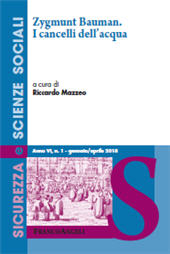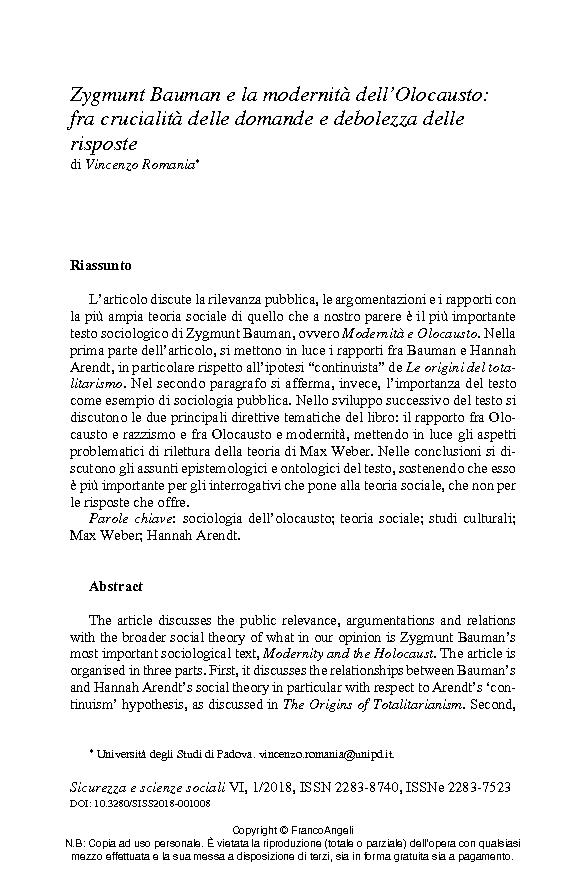Zygmunt Bauman e la modernità dell'Olocausto : fra crucialità delle domande e debolezza delle risposte
75-87 p.
L'articolo discute la rilevanza pubblica, le argomentazioni e i rapporti con la più ampia teoria sociale di quello che a nostro parere è il più importante testo sociologico di Zygmunt Bauman, ovvero Modernità e Olocausto. Nella prima parte dell'articolo, si mettono in luce i rapporti fra Bauman e Hannah Arendt, in particolare rispetto all'ipotesi "continuista" de Le origini del totalitarismo. Nel secondo paragrafo si afferma, invece, l'importanza del testo come esempio di sociologia pubblica. Nello sviluppo successivo del testo si discutono le due principali direttive tematiche del libro: il rapporto fra Olocausto e razzismo e fra Olocausto e modernità, mettendo in luce gli aspetti problematici di rilettura della teoria di Max Weber. Nelle conclusioni si discutono gli assunti epistemologici e ontologici del testo, sostenendo che esso è più importante per gli interrogativi che pone alla teoria sociale, che non per le risposte che offre. [Testo dell'editore].
The article discusses the public relevance, argumentations and relations with the broader social theory of what in our opinion is Zygmunt Bauman's most important sociological text, Modernity and the Holocaust. The article is organised in three parts. First, it discusses the relationships between Bauman's and Hannah Arendt's social theory in particular with respect to Arendt's 'continuism' hypothesis, as discussed in The Origins of Totalitarianism. Second, we suggest the relevance of Bauman's text as an example of public sociology. Finally, the two main thematic directives of the book are discussed: the relationship between the Holocaust and racism and between the Holocaust and modernity, highlighting the particularly problematic as-pects of the re-reading of Max Weber's theory.
The conclusions discuss the epistemological and ontological assumptions of the text, arguing that in our opinion Modernity and the Holocaust is far more important for the questions it poses to social theory than for the answers it provides. [Publishers' text].
Fait partie de
Sicurezza e scienze sociali : VI, 1, 2018-
Articles du même numéro (disponibles individuellement)
-
Informations
Code DOI : 10.3280/SISS2018-001008
ISSN: 2283-7523
DISCIPLINES
KEYWORDS
- Sociologia dell'olocausto, teoria sociale, studi culturali, Max Weber, Hannah Arendt
- Holocaust studies, social theory, cultural studies, Max Weber, Hannah Arendt



